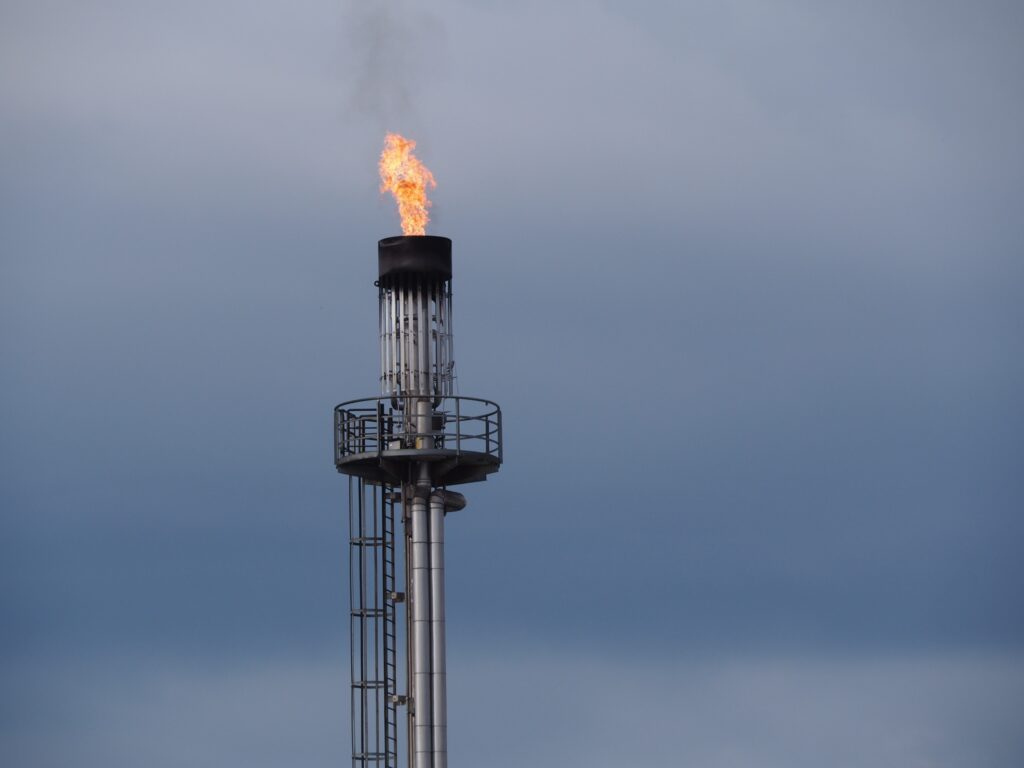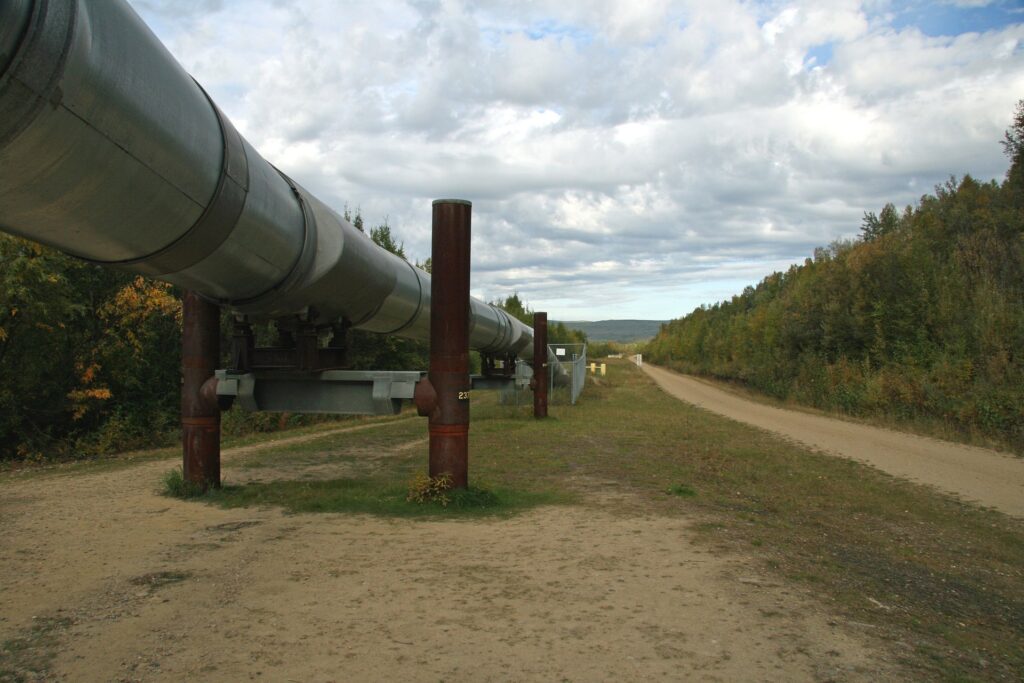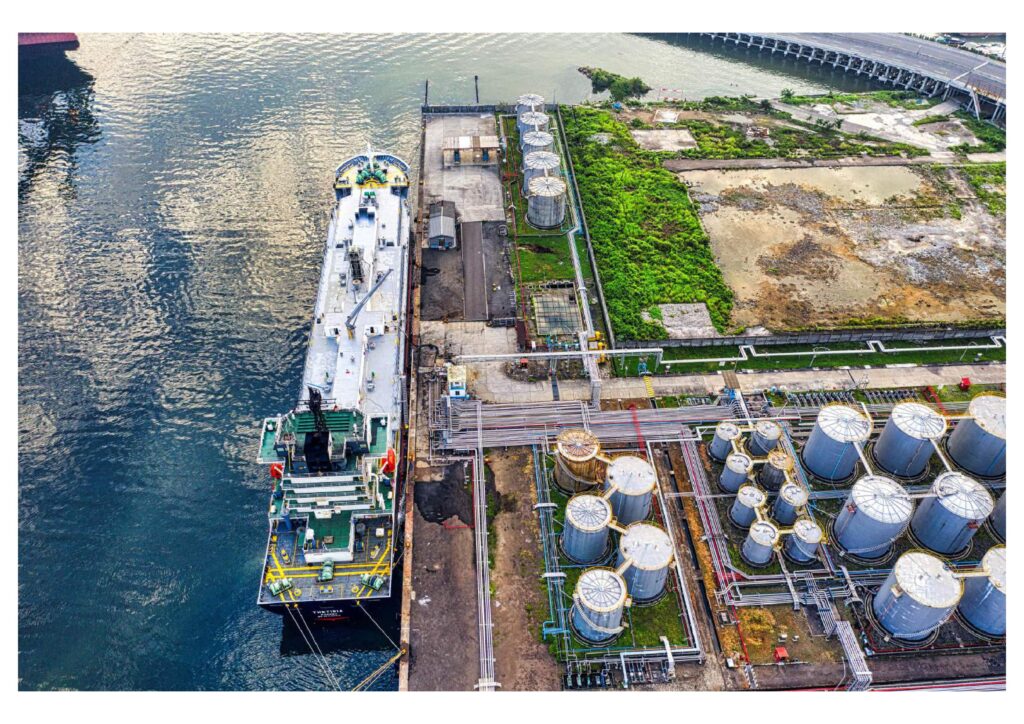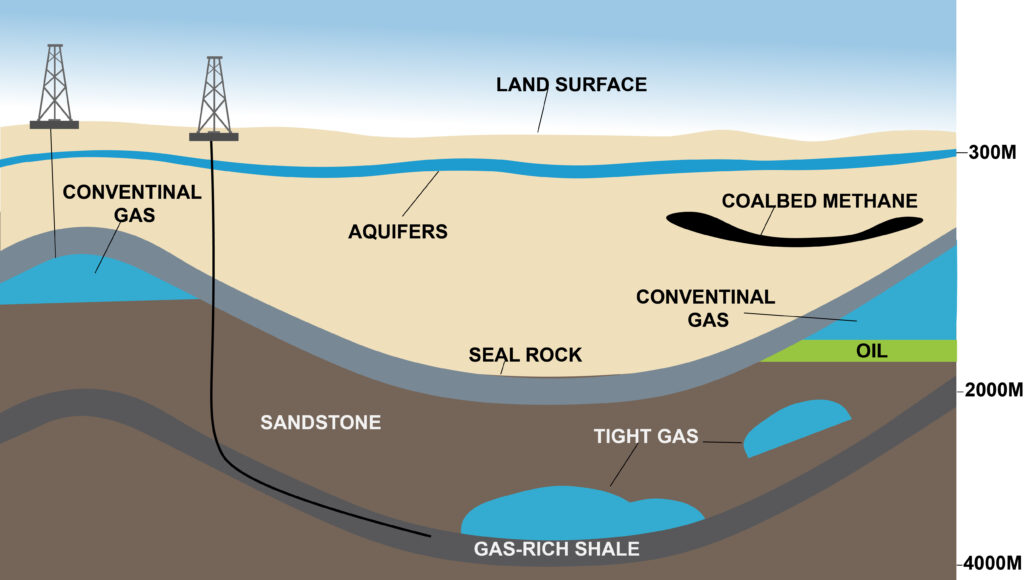In recent years, there has been growing attention towards finding sustainable and efficient energy sources. Among the various options available, natural gas has gained prominence due to its numerous advantages.
Natural gas is a fossil fuel primarily composed of methane, extracted from underground reserves. It has proven to be a reliable, rich, and all-around energy source that offers significant benefits to both the environment and the economy.
What is Natural Gas?
Natural gas is a fossil fuel composed primarily of methane and found deep underground. It is formed over millions of years by the decomposition of organic material such as ancient plants and animals.
Natural gas is extracted using drilling techniques and is known for its clean combustion properties, versatility as an energy source, and economic benefits.
It emits lower levels of greenhouse gases and pollutants than coal and oil, making it a cleaner alternative.
Natural gas can be used for a variety of purposes including power generation, heating, cooking, and industrial applications. It also provides economic benefits by reducing dependence on foreign energy sources and creating employment opportunities.
Important Pros of Natural Gas
| Important Pros of Natural Gas |
|---|
| 1. Environmentally cleaner: Natural gas burns cleaner than other fossil fuels like coal and oil, resulting in fewer harmful emissions. This helps improve air quality and reduces the negative impact on the environment. |
| 2. Reliable and plentiful: Natural gas reserves are abundant and widely available, ensuring a steady and consistent supply of energy for homes, businesses, and industries. |
| 3. Versatile and efficient: Natural gas can be used for various purposes, such as generating electricity, heating homes and water, cooking, and even powering vehicles. It is highly efficient, meaning it can produce more energy with less fuel. |
| 4. Reduced greenhouse gas emissions: While still a fossil fuel, natural gas emits lower levels of greenhouse gases compared to coal and oil. This makes it a useful transition fuel towards cleaner energy sources, helping to combat climate change. |
| 5. Existing infrastructure: Natural gas has an extensive pipeline network already in place, making it easier and more cost-effective to transport and distribute to consumers. |
| 6. Energy security: By relying on natural gas produced domestically, countries can reduce their dependence on foreign oil imports, which enhances energy security and reduces vulnerability to price fluctuations or supply disruptions. |
| 7. Economic benefits: The natural gas industry creates jobs and stimulates economic growth. It supports various sectors, from exploration and production to transportation and distribution, contributing to local and national economies. |
| 8. Backup power source: Natural gas can serve as a backup power source during emergencies or power outages. It is often used in standby generators to ensure essential services like hospitals, data centers, and emergency facilities can continue operating without interruption. |
| Fossil Fuel | Price per Unit (USD) |
|---|---|
| Coal | $45 – $100 per ton |
| Crude Oil | $60 – $70 per barrel |
| Natural Gas | $2 – $6 per MMBtu |
| Propane | $1.5 – $2.5 per gallon |
| Gasoline | $2.5 – $3.5 per gallon |
Cons of Natural Gas
| Cons of Natural Gas |
|---|
| 1. Greenhouse gas emissions: While natural gas emits fewer greenhouse gases compared to coal and oil, it still releases carbon dioxide (CO2) when burned. CO2 is a major contributor to climate change, so the use of natural gas can still contribute to global warming if not properly managed. |
| 2. Methane leakage: Natural gas is primarily composed of methane, which is a potent greenhouse gas. Methane leaks can occur during extraction, production, transportation, and distribution processes, contributing to overall greenhouse gas emissions and offsetting some of the environmental benefits of natural gas. |
| 3. Non-renewable resource: Natural gas is a fossil fuel formed over millions of years from organic matter. It is a finite resource and, once depleted, cannot be replenished within a human timeframe. Continued reliance on natural gas can perpetuate dependence on fossil fuels rather than transitioning to renewable energy sources. |
| 4. Environmental risks of extraction: The extraction of natural gas through methods like hydraulic fracturing (fracking) can pose environmental risks. Fracking involves injecting large volumes of water, chemicals, and sand into underground rock formations, which can lead to water contamination, habitat disruption, and potential health impacts for nearby communities. |
| 5. Infrastructure requirements: Utilizing natural gas as an energy source requires significant infrastructure investment. This includes building pipelines, storage facilities, and distribution networks. Expanding or maintaining this infrastructure can be costly and may contribute to ecosystem disruption and land use conflicts. |
| 6. Dependency on imports: In some regions, there may be a reliance on imported natural gas to meet energy demands. This dependence on foreign sources can expose countries to geopolitical risks, price volatility, and potential supply disruptions. |
| 7. Limited energy diversification: Overreliance on natural gas can hinder the development and adoption of alternative and renewable energy sources. It can impede the transition to a more diverse and sustainable energy mix, slowing down efforts to reduce carbon emissions and combat climate change. |
| 8. Flammable and safety concerns: Natural gas is highly flammable and can pose safety risks if not handled and transported properly. Gas leaks can result in fire hazards, explosions, and potential harm to human health and the environment. Adequate safety measures and regular maintenance are necessary to minimize these risks. |

Natural Gas is an Eco Friendly
Natural gas is often considered a relatively eco-friendly fossil fuel compared to coal and oil. It burns cleaner, emitting lower levels of pollutants and greenhouse gases, which can lead to improved air quality and reduced environmental impact.
However, it’s important to recognize that natural gas still contributes to greenhouse gas emissions, including methane, a potent greenhouse gas.
To achieve a truly sustainable and eco-friendly energy system, the focus is increasingly shifting towards renewable energy sources that have even lower carbon emissions and insignificant environmental impacts.
How does Natural Gas Work
| Natural gas |
|---|
| 1. Extraction: Natural gas is extracted from underground reserves through drilling wells. It may be found alongside oil deposits or in dedicated natural gas fields. |
| 2. Processing: The extracted natural gas undergoes a series of processes to remove impurities such as water, oil, and solid particles. It is then treated to remove contaminants like sulfur compounds and carbon dioxide. |
| 3. Compression: Once treated, the natural gas is compressed to increase its pressure, making it easier to transport through pipelines or for storage purposes. |
| 4. Transportation: The compressed natural gas is transported through an extensive network of pipelines, connecting production sites with distribution points or end consumers. |
| 5. Distribution: At distribution points, the natural gas is further regulated and sometimes odorized (with added odorants) for safety purposes. It is then delivered to various end-users through local distribution networks. |
| 6. Utilization: Natural gas has versatile applications. It can be used for electricity generation in power plants, as a fuel for heating and cooking in residential and commercial buildings, and as a fuel source for industrial processes. It can also be used as a transportation fuel in compressed natural gas (CNG) or liquefied natural gas (LNG) vehicles. |
| 7. Combustion: When natural gas is burned, it releases energy in the form of heat. This heat can be used directly for heating purposes or converted into mechanical energy to generate electricity. |
| 8. Environmental Impact: Natural gas combustion generally produces fewer emissions and pollutants compared to coal and oil. However, it still contributes to greenhouse gas emissions, primarily through the release of carbon dioxide (CO2) and methane. |
| 9. Safety Measures: Safety measures are in place to ensure the proper handling, storage, and distribution of natural gas. These include regular inspections, monitoring for leaks, and following safety protocols to prevent accidents or hazards. |

Source of Natural Gas
| Source of Natural Gas | Description |
|---|---|
| Conventional Natural Gas | Natural gas is trapped in unconventional reservoirs requiring specialized extraction techniques. It includes: |
| Unconventional Natural Gas | Natural gas is trapped in unconventional reservoirs requiring specialized extraction techniques. It includes: |
Conclusion
Natural gas offers several advantages as a cleaner, versatile, and abundant energy source. However, it also poses environmental and safety concerns, particularly regarding methane emissions and fracking.
Balancing the benefits with the potential drawbacks requires careful regulation, monitoring, and investment in renewable energy alternatives.

FAQs
Q1. Is natural gas better for the environment compared to coal and oil?
Yes, natural gas combustion produces fewer greenhouse gas emissions and air pollutants compared to coal and oil. However, methane leakage during extraction and transportation can undermine its environmental benefits.
Q2. Can natural gas be used for transportation purposes?
Yes, natural gas can be used as a transportation fuel in the form of compressed natural gas (CNG) or liquefied natural gas (LNG). It is considered a cleaner alternative to conventional gasoline or diesel.
Q3. What are the safety risks associated with natural gas?
Natural gas is highly flammable, and leaks can lead to fire or explosions. Safety risks include accidental ignition, improper installation, or inadequate maintenance of gas infrastructure.
Q4. How does natural gas contribute to energy security?
Countries with access to domestic natural gas reserves can reduce their dependence on imported energy sources, enhancing their energy security and reducing geopolitical risks associated with energy imports.
Q5. What role can natural gas play in the transition to renewable energy?
Natural gas can serve as a transitional fuel by complementing intermittent renewable energy sources. It provides a reliable backup power supply while renewable technologies continue to advance.

